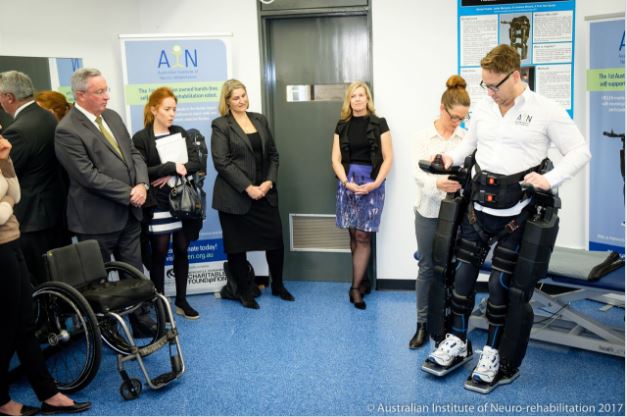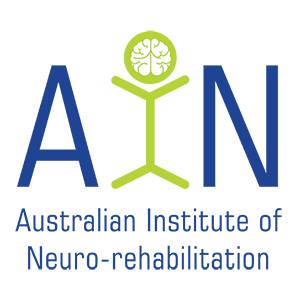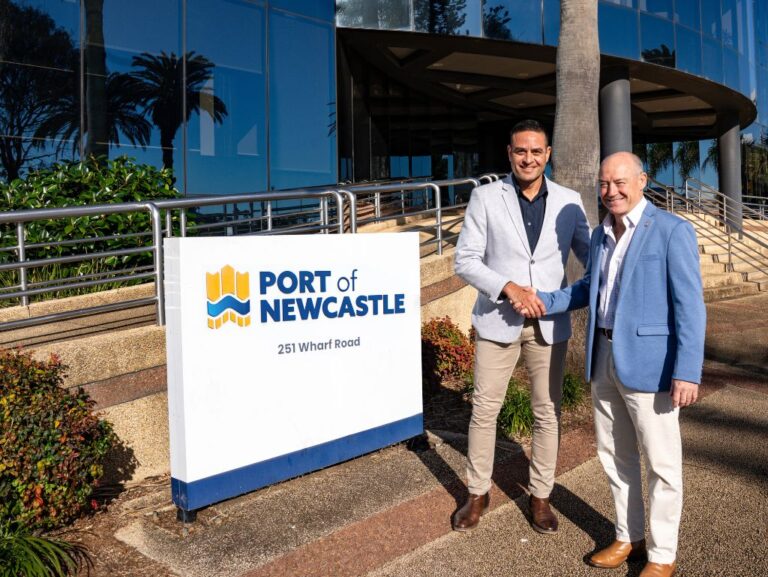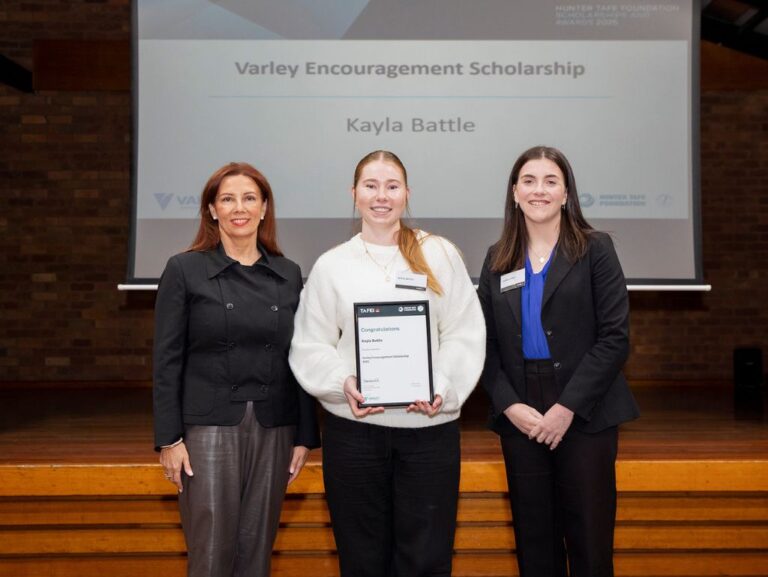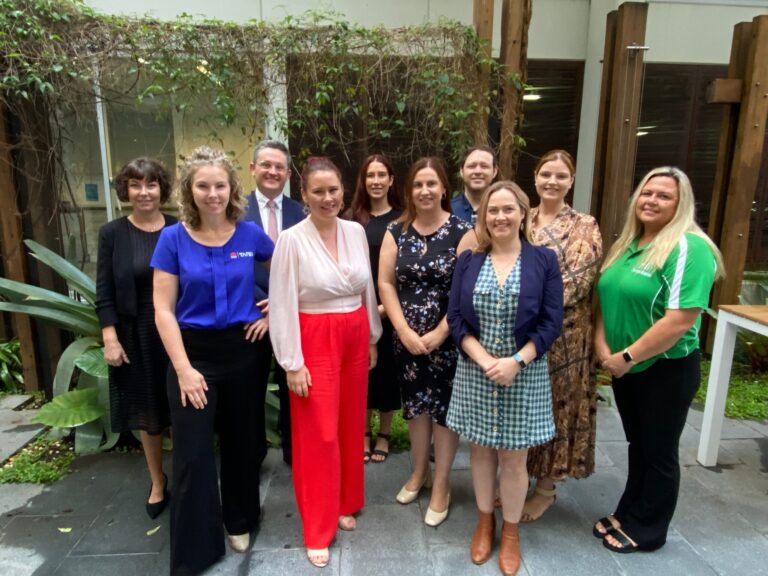A world-first clinical trial that is helping with the rehabilitation of Novacastrians with mobility impairments is underway at the Physiotherapy Robotic Lab at the University of Newcastle.
The star of the clinical trial is a robot affectionately named HELLEN (Hunter’s Exoskeleton for Lower Limb Exercise and Neuro-rehabilitation) that is manufactured by Rex Bionics in New Zealand.
The organisation behind bringing HELLEN to the region is the Australian Institute of Neuro-rehabilitation (AINRehab), a 100% community based not-for-profit and the brain child of Port Stephens resident, Trish Leonard.
Driven by her own personal experiences from her Mother’s needs after a debilitating stroke, Trish formed AINRehab to help make a difference for others with neuro-rehabilitation needs in the Hunter.
In late 2016, with the generosity of the community and a grant from the Newcastle Permanent Charitable Foundation, AINRehab raised the necessary dollars needed to purchase Australia’s first free-standing robot, HELLEN, for the Hunter.
With the cooperation of the University of Newcastle, a clinical trial commenced with participants currently partaking in a 12 week trial.
AINRehab CEO and Founder, Trish Leonard said this is an exciting advancement for the Hunter region.
“To have Australia’s first hands-free exoskeleton here in Newcastle and designing a world-first clinical trial to help people with neurological conditions is a dream come true,” Trish said.
“Research shows us that high intensity, repetitive, task-oriented training in a stimulating environment can lead to neuro-recovery with the brain having the capacity to adapt and recover after injury or illness.
“To see someone who relies on a wheelchair stand for the first time and walk with the assistance of the HELLEN robot is beyond words and very emotional for everyone involved.”
In Australia, neurological conditions represent the fourth highest drain on the health budget and costs $10 billion annually. There are over 700,000 people in the country living with a neurological condition, each with activity limitations or participation restrictions and who have no access to publicly funded or private insurance funded intensive neurorecovery programs.
Results from the 2010 National Disability Services Report found that $5 billion could be injected back into the economy if just two per cent of the people with a disability and 10 per cent of their carers could come off the Disability Support Pension and return to the workforce.
“This is just the beginning,” Trish said.
“Our plan at AINRehab is to raise enough funding to provide robotic neuro-rehab technology for every community across Australia. We know the community will always dig deep as it is part of being an Australian, however we also need the government to recognise our work, its benefits to the community and to support us generously.”
AINRehab are always looking for Hunter residents with neuro-rehabilitation needs to participate in the 12 week clinical trial.
IMAGE | Researchers Jodie and Nicola with AINRehab Board member and paraplegic Louis, demonstrating the capabilities of HELLEN the Hunter’s first exoskeleton to The Hon. Brad Hazzard, NSW Minister for Health.

